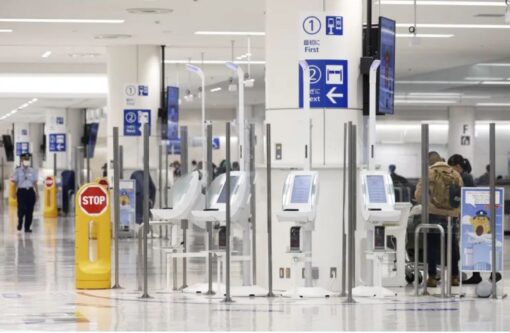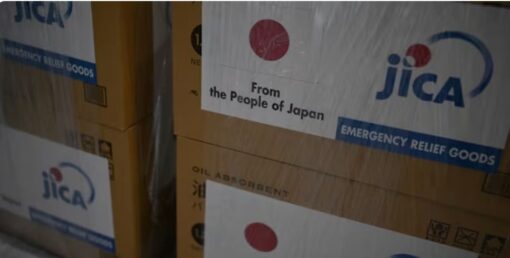Tokyo, Japan – Japan has abruptly cancelled a cultural exchange program with African countries after a wave of misinformation sparked public outcry and raised fears of increased immigration.
The Africa Hometown initiative, organized by Japan’s foreign aid agency, was intended to strengthen ties and promote cultural understanding between four regional Japanese cities and communities in African nations.
Officials described it as a training and cultural scheme with no direct link to visas or migration, yet a series of online false claims misrepresented the program, causing significant backlash.
The controversy began when an inaccurate statement from a Nigerian government agency suggested the creation of a special visa category for African participants. This misinformation quickly spread online, amplified by social media, and fueled rumors that millions of foreigners were poised to enter Japan.
Critics targeted Prime Minister Shigeru Ishiba, accusing him of planning large-scale immigration under the guise of cultural exchange.
The false narrative gained traction rapidly, exacerbated by high-profile amplification, leading to thousands of complaints and overwhelming local authorities tasked with handling the influx of calls and messages.

“The reactions spread based on misunderstandings and confusion,” JICA President Akihiko Tanaka said in Tokyo. “The Africa Hometown initiative will be withdrawn.”
Tanaka emphasized that while the program is being suspended, Japan remains committed to international cultural exchange, including partnerships with African nations.
He added, “The agency does not deal with immigration issues,” highlighting the gap between the program’s purpose and the misconceptions that fueled public alarm.
Japan has long maintained some of the strictest immigration regulations in the world, yet the country faces a growing tension between its need for foreign labor and rising anti-immigrant sentiment.
With an ageing population and shrinking workforce, Japan’s economy increasingly relies on foreign workers in sectors such as healthcare, construction, and technology.
Despite this economic reality, public opposition to immigration remains strong, giving traction to far-right political movements advocating for a “Japanese First” policy and tighter border controls.
The Africa Hometown scheme was specifically designed to offer participants short-term exchanges for cultural immersion and skills development, rather than permanent residence or employment.
Nonetheless, online speculation and manipulated information turned a limited educational initiative into a perceived threat. One city reportedly received as many as 200 angry calls per day, forcing municipal staff to divert resources from routine operations to respond to public concerns.
Tanaka noted that the backlash highlighted the challenges of countering misinformation in the digital age, particularly when fueled by popular narratives about immigration.
Public figures and online commentators further intensified the controversy, with some warning that Japan’s identity and cultural integrity were at risk. “If this continues, there will be no Japan, just some islands where Japanese people used to live,” one widely shared social media comment stated, reflecting the extreme rhetoric that shaped public opinion.
Critics of the program argued that even minor concessions to foreign participants could open the door to larger immigration policies, despite reassurances from officials that the initiative was limited to cultural and educational objectives.
The program’s cancellation illustrates the impact of misinformation and populist narratives on policy decisions. While Japan’s leadership recognizes the need for skilled foreign workers, political sensitivity and public perception often dictate government action.
Leaders have signaled caution, emphasizing controlled engagement rather than permanent immigration channels. Even though immigrants represent only about three percent of Japan’s total population, far-right parties have capitalized on fears to gain political influence, framing the issue as one of national security and cultural preservation.
Experts note that the suspension of the Africa Hometown program could have broader implications for Japan’s international standing. By withdrawing the initiative, Japan risks sending a message that public misinformation can derail diplomatic and cultural efforts.
Analysts argue that this incident underscores the importance of clear communication and proactive countermeasures to prevent misunderstandings from escalating into policy reversals.
Despite the cancellation, officials maintain that international cooperation remains a priority. Programs aimed at cultural exchange, education, and development are expected to continue under revised frameworks that ensure transparency and mitigate the spread of false information.
Tanaka stressed that future initiatives would include more robust public communication strategies and close coordination with both domestic and international partners.
The controversy has also ignited debate on the role of digital platforms in shaping public opinion and policy outcomes. Social media’s ability to amplify unverified claims can create a perception of crisis, pressuring authorities to act quickly even in the absence of factual evidence.
Analysts warn that the Japan case may serve as a cautionary tale for other nations, highlighting the intersection of technology, populism, and governance in the modern age.
Beyond immediate public reactions, the program’s suspension raises questions about Japan’s broader approach to global engagement.
While the government has increasingly acknowledged the economic necessity of foreign labor, balancing cultural preservation, public sentiment, and strategic international partnerships remains a delicate task. Programs like Africa Hometown are particularly vulnerable to misrepresentation because they involve cross-border exchanges and unfamiliar cultural frameworks.
The cancellation also sheds light on the growing influence of misinformation campaigns in shaping policy decisions. Even well-intentioned initiatives can be derailed when online narratives gain traction, prompting authorities to prioritize public perception over program goals.
Observers note that ensuring accurate information dissemination is becoming as crucial as the policies themselves, especially in areas that intersect with sensitive topics such as immigration, labor, and cultural identity.
Public reaction has been mixed. Some citizens welcomed the cancellation, viewing it as a protective measure for Japan’s cultural integrity. Others expressed concern that halting the program undermines international cooperation and damages Japan’s reputation as a partner in global development.
Stakeholders in African partner countries voiced disappointment at the decision, noting the potential benefits of cultural and educational exchanges for youth development, capacity building, and mutual understanding.
The debate over the Africa Hometown initiative reflects a broader tension in Japanese society between demographic necessity and cultural conservatism.
As the population continues to age and the labor force contracts, policymakers are increasingly confronted with difficult choices regarding foreign engagement. The recent episode demonstrates how misinformation can shape these choices, influencing public perception and pressuring officials to make reactive decisions.
Going forward, Japan faces the challenge of navigating international collaboration while maintaining domestic political stability. Clear communication, public education, and transparent policy design will be essential to rebuild trust and ensure that future initiatives are understood for their intended purpose.
Officials have indicated that lessons learned from the Africa Hometown program will inform the design and implementation of subsequent cultural exchange projects, emphasizing careful messaging, stakeholder consultation, and monitoring of public sentiment.
While the Africa Hometown program has been suspended, the underlying need for Japan to engage with foreign talent and cultural partners remains pressing. Experts argue that balancing security concerns, public perception, and economic realities will require innovative policy solutions and proactive management of information flows.
Successful programs will likely depend on combining educational objectives with clear guidelines to prevent misinterpretation and minimize the risk of public backlash.

The incident also underscores the global impact of misinformation and populist rhetoric in an interconnected world. Countries must adapt to the rapid dissemination of false claims and develop strategies to counter their influence on both domestic and international policies.
For Japan, this episode serves as a reminder that even minor initiatives can become major controversies when online narratives dominate public discourse.
Japan’s withdrawal from the Africa Hometown program highlights the delicate interplay between migration, cultural exchange, and public opinion.
As the country grapples with demographic challenges and economic needs, authorities will need to carefully manage communication and ensure that future international partnerships are implemented in ways that are transparent, resilient to misinformation, and sensitive to public sentiment.
Only through careful planning and engagement can Japan continue to promote international cooperation without triggering unnecessary political and social tensions.
Keyphrase: Africa exchange
Word count: 1,202


